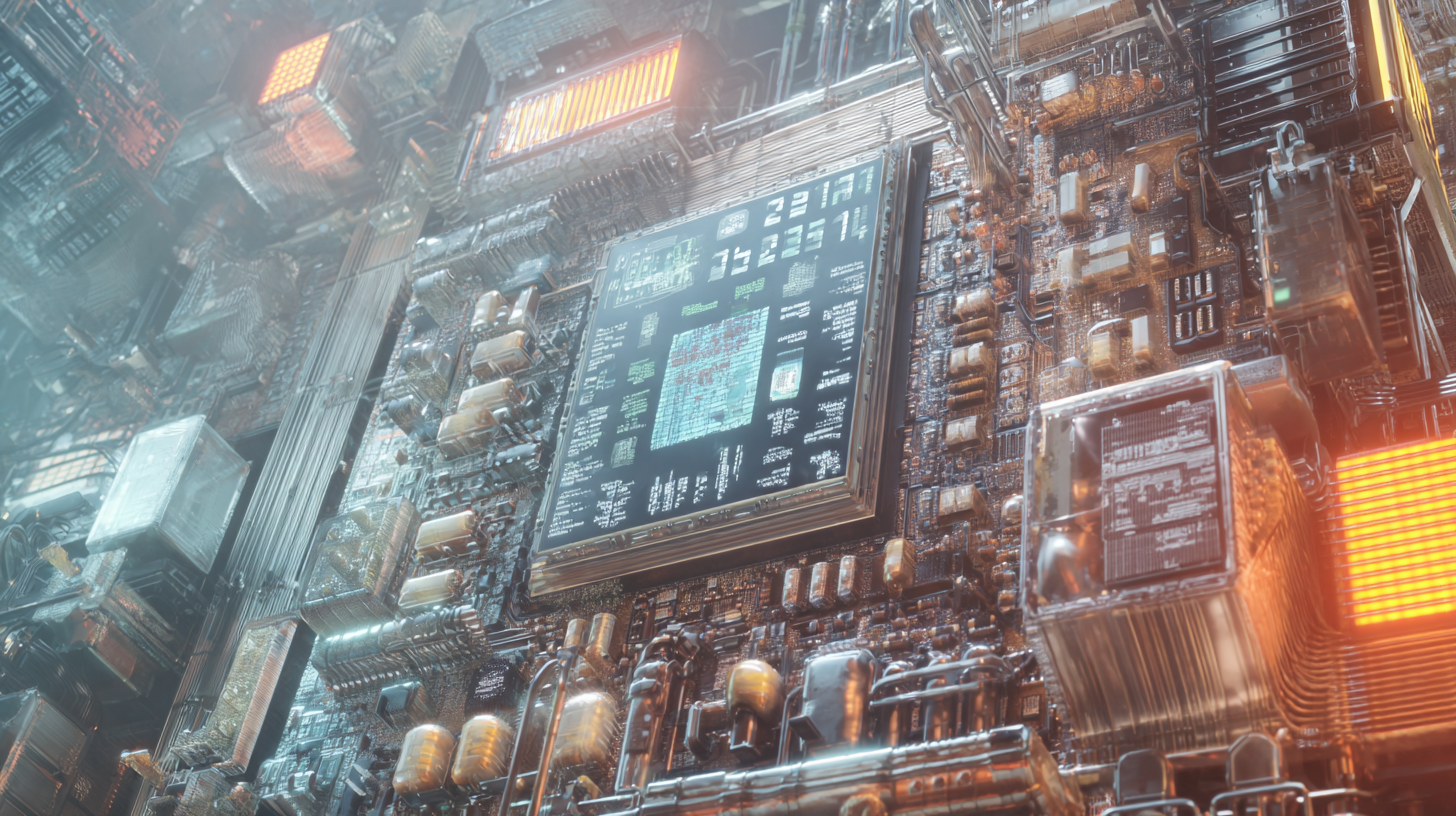
Discovering Best Suppliers in 2025 A Glimpse into Future Technology Trends
As we venture into 2025, the landscape of supply chain management is poised for transformation driven by emerging technology trends. The quest to discover the best suppliers is more crucial than ever, as businesses seek not only quality products but also innovative solutions that adapt to a rapidly changing market. However, this journey is not without its challenges.

In this blog, we will explore the potential problems associated with identifying and collaborating with suppliers, including issues related to reliability, communication, and technological integration. As technology advances, understanding how to effectively navigate these challenges will be key to establishing successful supplier partnerships.
Join us as we delve into the future of supplier selection and the implications of upcoming tech advancements on this essential business process.
Exploring Innovations Transforming Supplier Selection in 2025
In 2025, the landscape of supplier selection is poised to undergo a radical transformation, driven by advancements in technology and the integration of innovative tools. Artificial Intelligence (AI) will be at the forefront of this revolution, enabling companies to analyze vast amounts of data to identify the best suppliers based on performance metrics and risk assessments. With machine learning algorithms, businesses can predict future supplier reliability by examining historical data, thus allowing for more informed decision-making than ever before.
Moreover, the adoption of blockchain technology will enhance transparency and trust within the supply chain. This decentralized approach will enable real-time tracking of products, proving compliance and ethical sourcing practices. As suppliers and buyers engage on a more transparent platform, it will foster better relationships and accountability. Additionally, the rise of digital twins—virtual replicas of supply chains—will allow organizations to simulate different scenarios, optimizing their supplier selection process by evaluating potential outcomes before making commitments. As we look towards 2025, these innovations will not only streamline supplier selection but also reshape the way businesses interact with their partners.

Emerging Technologies Shaping Supply Chain Dynamics
As we look towards 2025, emerging technologies are fundamentally revolutionizing supply chain dynamics. The integration of Artificial Intelligence (AI) and Machine Learning (ML) into strategic planning not only enhances efficiency but also serves as a robust risk mitigation strategy. These technologies enable organizations to analyze vast amounts of data in real-time, providing insights that can lead to faster decision-making processes and more resilient supply chains.
Tips for businesses include staying agile and adaptable in their operations. By fostering a culture of innovation and embracing digital transformation, organizations can better navigate disruptions. Building a tech-forward mindset allows for the seamless integration of advancements such as blockchain and advanced analytics, ensuring that supply chains remain competitive.
Moreover, as companies adopt next-generation port technologies, they can gain access to real-time data that optimizes logistics and reduces costs. This shift towards digital solutions is not just about survival; it’s about transforming the supply chain into a more sustainable and forward-thinking ecosystem, ready to meet the demands of the future.
The Role of AI and Automation in Supplier Management
Artificial intelligence (AI) is set to revolutionize supplier management by enhancing collaboration and automating various procurement tasks. In 2025, it is estimated that AI can process procurement tasks up to 80% faster than traditional methods, significantly improving efficiency across supply chains. Many organizations are expected to leverage advanced AI tools to streamline operations, manage vendor data, and fortify their decision-making processes, thus overcoming challenges posed by increasing market volatility.
**Tips for Implementing AI:**
1. **Invest in Training**: Equip your procurement teams with training on AI tools to ensure they can maximize capabilities and enhance their skill sets.
2. **Data Quality Matters**: Ensure that the data fed into AI systems is accurate and up-to-date, as this directly influences the output and decision-making quality.
Emerging startups are capitalizing on these trends, with a notable rise in procuretech innovations focused on AI-driven solutions. By adopting AI and automation, companies can protect themselves against potential disruptions and enhance overall supply chain resilience, addressing emerging global challenges effectively. As we move through 2025, the integration of automation in logistics and procurement will not only optimize processes but also pave the way for smarter, data-driven strategies in supplier management.
Discovering Best Suppliers in 2025 - A Glimpse into Future Technology Trends
| Supplier Category | Technology Used | AI Utilization | Automation Level | Future Trends |
|---|---|---|---|---|
| Manufacturing | IoT, Smart Robotics | Predictive Maintenance | High | Sustainable Production |
| Logistics | Autonomous Vehicles | Route Optimization | Medium | Last-Mile Delivery Solutions |
| Supply Chain | Blockchain, Data Analytics | Supplier Risk Assessment | High | Decentralized Procurement |
| Retail | Augmented Reality | Customer Behavior Analysis | Medium | Personalized Shopping Experiences |
| Technology Services | Cloud Computing, AI | Automated Support Services | High | Continuous Learning Systems |
Sustainability Trends Influencing Supplier Partnerships
As we venture into 2025, the landscape of supplier partnerships is transforming under the influence of sustainability trends. Companies are increasingly prioritizing eco-friendly practices when selecting suppliers, recognizing that sustainability is not just a responsibility but a key driver in business strategy. For instance, suppliers that adopt renewable energy sources and sustainable materials often become a favored choice, as they resonate with the ethical values of modern consumers. This shift is fostering a new era of collaboration, wherein businesses and suppliers work hand-in-hand to integrate sustainable practices throughout the supply chain.
Moreover, advancements in technology are enhancing transparency and accountability in supplier partnerships. Blockchain technology, for example, allows companies to trace the origins of materials, ensuring that suppliers meet rigorous sustainability criteria. Digital platforms are also facilitating easier communication, encouraging suppliers to provide real-time updates on their environmental practices. As organizations strive toward achieving their sustainability goals, the emphasis on partnering with suppliers who embrace these principles will only intensify, setting the stage for a more responsible and innovative business ecosystem.

Future Skills Needed for Navigating Supplier Relationships
As we move into 2025, the landscape of supplier relationships in the tech industry is undergoing significant transformation, particularly influenced by emerging technologies like augmented reality (AR) and advanced navigation systems. The integration of AR with navigation is expected to revolutionize how we interact with our environment, offering real-time, context-sensitive information that can enhance decision-making processes. This shift not only enhances user experience but also sets new expectations for suppliers in providing innovative solutions that align with these technologies.
Navigating the future of supplier relationships will require new skills centered around technology literacy and adaptive collaboration. Professionals will need to understand complex systems that integrate cutting-edge technologies, such as secure positioning solutions and enhanced geographic information systems. As industries focus more on automation and advanced driver-assistance systems, the need for suppliers who can deliver precise and reliable technology will become paramount. Cultivating skills in data analysis, system integration, and proactive communication will enable businesses to forge stronger, more effective partnerships in a rapidly evolving market.
Supplier Evaluation Factors in 2025
This bar chart illustrates the key supplier evaluation factors that are predicted to be crucial in 2025, reflecting the essential skills required for optimizing supplier relationships in future technology trends.
